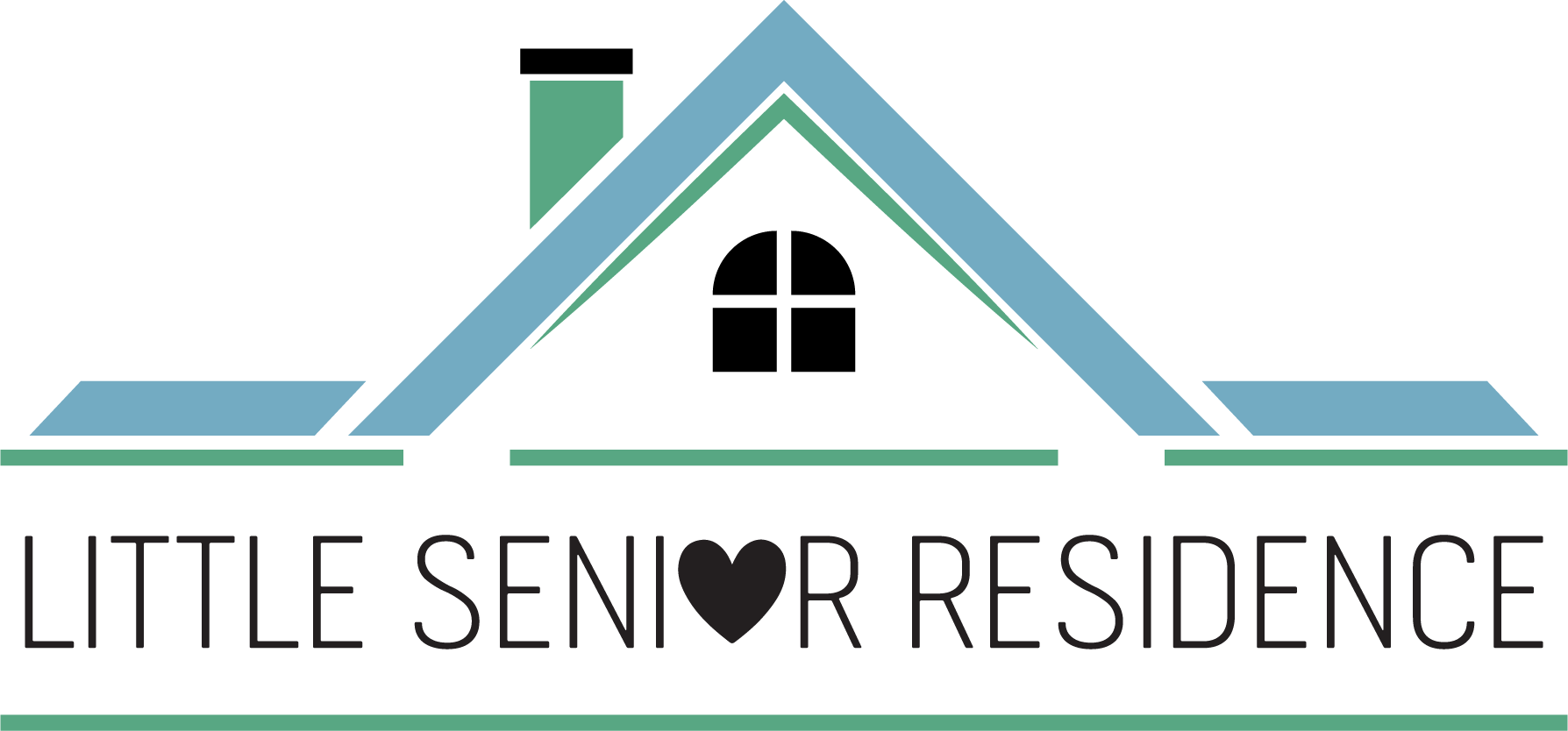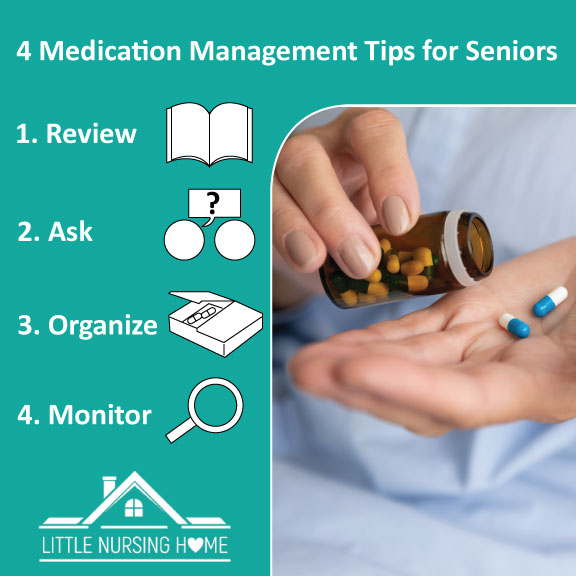Managing medication can be a confusing experience for seniors. In a nursing home environment, medication is typically managed by the staff. That is reassuring for family members that live long-distance or cannot regularly check up on their relatives. For seniors that still live at home, the challenge increases and they may need assistance to effectively manage medications. With that in mind, we want to share some tips to help you & your loved ones prevent medication hazards.
1. Review
Go through each medication individually. Take note of the name, dosage, and frequency of each. You will Do not exclude over-the-counter drugs, vitamins, or herbal supplements as they may also interact with medications. If you or your loved one has multiple doctors, it may be useful to take down the name of the prescriber of each medication.
Review the list at the next doctor visit. Providing the doctor with as much information as possible helps them accurately identify potential adverse effects or drug interactions.
2. Ask
Starting a new drug can be tricky. Ask about possible side effects before taking a new drug. Questions like how and when to take it, and if it should be taken with or without food are important. Read the label on prescription and over-the-counter medications. In addition, check in with loved ones or note differences you noticed since starting the medication. Drugs can affect seniors in different ways, such as changes in weight, sleep patterns, hunger, or balance.
3. Organize
Staying organized is as easy as ever. There are various tools and devices to keep you on track. For instance, mail-order pharmacy services, like PillPack. send medication already in order. Families often prefer “smart”, or tech-enabled, pillboxes or dispensers along with reminder apps. Shop around for options to help your loved one stay safe when portioning and scheduling doses.
4. Monitor
Medications work best when taken as directed. Monitoring the effects and frequency that they are taken is crucial. Seniors with cognitive impairment, such as dementia or Alzheimer’s disease, require extra oversight. If taken incorrectly, medications can be detrimental or even fatal.
On average, 80% of older adults take at least two prescription medications daily according to a study in JAMA Internal Medicine. The rates are higher when over-the-counter drugs, vitamins, and supplements are factored in. Following these simple guidelines can help your loved one can practice safer medication management.
If you are considering a nursing home or assisted living for a loved one in northern NJ, The Little Nursing Home of Montclair offers a cozy and calm atmosphere with the comforts of home. We are family-owned for over 60 years and run by experienced registered nurses. Call or email us for more info or to schedule a tour.

